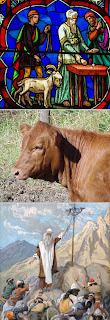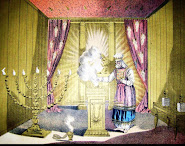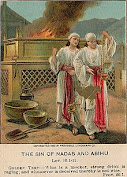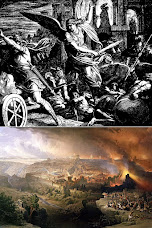Illustrated Evening School
("Illustrirte Abendschule.")
This paper, dedicated to the instruction and entertainment of the more mature youth, edited by Pastor C. Diehlmann and published by the engraver Mr. H. Tubesing in Buffalo, has already been recommended in the Der Lutheraner (Vol. 10. No. 10.) [sic, No. 13; p. 102-104] to all readers concerned at the time of its publication. It was warmly recommended to all readers concerned. Now, after the completion of the first year of that paper, we not only have no reason to regret our recommendation, but also feel compelled to repeat our warmest recommendation of it. Of course, we do not say this for those who have already received the journal, since there will certainly be few among them for whom the journal has not become indispensable. But we would like to remind those young people who have not yet been made aware of it. Whoever, whatever his profession who, whatever his occupation, desires to be encouraged in all kinds of useful knowledge, and seeks a fruitful entertainment for hours of recreation, will not find in the United States a journal equal to the "Evening School," much less one more suitable for the purpose. Parents, teachers, preachers, and instructors should be careful to bring the paper to their younger charges, and young people to their friends of youth. Through the overviews of the political and other important events of the present that have been included in the journal for some time, it has made every other political journal dispensable for most readers and thus, to a great blessing, has partly displaced many bad newspapers written in the spirit of irreligion and immorality, and partly blocked their entrance. It is true that the paper can no longer be delivered for fifty cents per issue, but from now on costs seventy-five cents; however, this is also such a low price that it can be considered by only very few. In addition, the journal has not only been embellished in that it now appears in four sheets each, of which one volume makes a beautiful book, but in its new form it also contains considerably more teaching material than before. As we have heard, the publisher has had to increase the number of subscribers considerably, since the pictures, as simple as they are, increase the costs of the journal not a little. Whoever is concerned that the dear youth, which is more willing to read here than elsewhere, is not deprived of a means to satisfy this desire not by poisoning the heart, but with true benefit, should also make it his business to distribute the Evening School.
- - - - - - - - - - - - - - - - - - - - - - - - -









